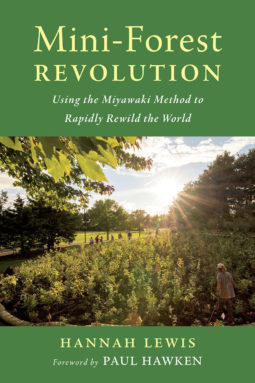 In this week’s How on Earth, we look at 3 aspects of climate change: its role in disease incidence and transmission; some effects of the new climate change legislation; and how ‘micro-forests’ can mitigate temperature and water loss. The latter comes from an interview with author Hannah Lewis and her book Mini-Forest Revolution, in which she describes the Miyawaki Method, a unique approach to reforestation devised by Japanese botanist Akira Miyawaki.
In this week’s How on Earth, we look at 3 aspects of climate change: its role in disease incidence and transmission; some effects of the new climate change legislation; and how ‘micro-forests’ can mitigate temperature and water loss. The latter comes from an interview with author Hannah Lewis and her book Mini-Forest Revolution, in which she describes the Miyawaki Method, a unique approach to reforestation devised by Japanese botanist Akira Miyawaki.
Executive Producer: Beth Bennett
Show Producers: Beth Bennett & Benita Lee
Engineer: Shannon Young
Listen to the Show:
Podcast: Play in new window | Download (Duration: 27:57 — 23.2MB)
Subscribe: RSS


 This week on How on Earth, Beth speaks with author and planetary geologist Dr. Simon Morden. In his book,
This week on How on Earth, Beth speaks with author and planetary geologist Dr. Simon Morden. In his book,  This week on How on Earth, Beth talks with Dr Seven Hussey about his recent
This week on How on Earth, Beth talks with Dr Seven Hussey about his recent  This week on How on Earth, Beth speaks with Susan Allport, an award-winning writer who has written extensively on science. They talk about her book on omega 3 fats, The Queen of Fats, namely the touted omega-3 fatty acid. These essential fats can’t be synthesized by the human body and must be obtained from our diets. The conversation ranges widely, including details as to why they are so critical to health and some of the unique evolutionary history of our species that makes them so necessary. You can find out more about these amazing molecules at
This week on How on Earth, Beth speaks with Susan Allport, an award-winning writer who has written extensively on science. They talk about her book on omega 3 fats, The Queen of Fats, namely the touted omega-3 fatty acid. These essential fats can’t be synthesized by the human body and must be obtained from our diets. The conversation ranges widely, including details as to why they are so critical to health and some of the unique evolutionary history of our species that makes them so necessary. You can find out more about these amazing molecules at 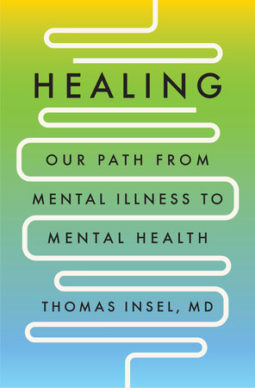 IN this week’s show Beth speaks with Dr Thomas Insel, former director of the National Institute of Mental Health. Dr. Insel was giving a presentation when the father of a boy with schizophrenia yelled from the back of the room, “Our house is on fire and you’re telling me about the chemistry of the paint! What are you doing to put out the fire?” Dr. Insel knew in his heart that the answer was not nearly enough. In his
IN this week’s show Beth speaks with Dr Thomas Insel, former director of the National Institute of Mental Health. Dr. Insel was giving a presentation when the father of a boy with schizophrenia yelled from the back of the room, “Our house is on fire and you’re telling me about the chemistry of the paint! What are you doing to put out the fire?” Dr. Insel knew in his heart that the answer was not nearly enough. In his 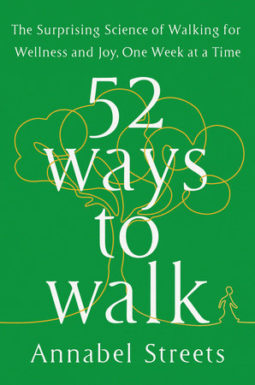 In this week’s show Beth talks to author Annabel Streets. Her book
In this week’s show Beth talks to author Annabel Streets. Her book  This week on How on Earth, Beth talks to 2 climate scientists about their (very different) fields, and how climate change can play into local disasters, especially the recent fires that devastated the Front Range towns outside Boulder. Twila Moon is a
This week on How on Earth, Beth talks to 2 climate scientists about their (very different) fields, and how climate change can play into local disasters, especially the recent fires that devastated the Front Range towns outside Boulder. Twila Moon is a  2021 saw many remarkable science stories making it difficult to pick the top contenders. The How on Earth team struggled with these decisions but here they are!
2021 saw many remarkable science stories making it difficult to pick the top contenders. The How on Earth team struggled with these decisions but here they are!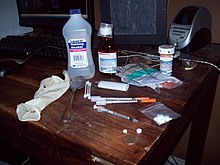 This week on How On Earth, we welcome Benita Lee who brought up the growing problem with fentanyl – a new street drug that’s killing many. Benita talks with DEA agent David Olesky about the scope of the problem and what the agency is doing to combat it. Beth talks with pharmacologist and policy maker Robert Valuck about how the drug affects the brain, causes death, and the protective effect of the blocking drug naloxone.
This week on How On Earth, we welcome Benita Lee who brought up the growing problem with fentanyl – a new street drug that’s killing many. Benita talks with DEA agent David Olesky about the scope of the problem and what the agency is doing to combat it. Beth talks with pharmacologist and policy maker Robert Valuck about how the drug affects the brain, causes death, and the protective effect of the blocking drug naloxone.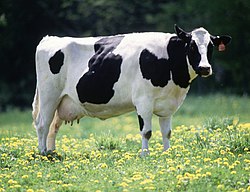 This week on How on Earth, Beth talks with Professor Fred Provenza, author of the book
This week on How on Earth, Beth talks with Professor Fred Provenza, author of the book